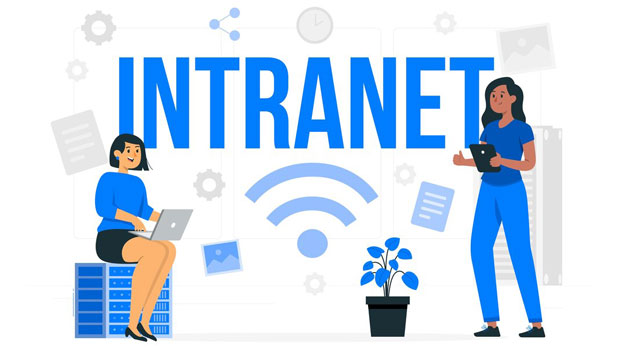When it comes to choosing the right static residential proxy service for long-term tasks, there are two prominent players in the market: PYPROXY and Pirate Proxies. Both services provide unique advantages, but understanding which one is more suitable for sustained use requires a closer look at their features, performance, and potential drawbacks. In this article, we will compare both services to help you make an informed decision. We will focus on key aspects like speed, reliability, customer support, security features, and pricing to determine which provider offers better value for long-term use. Overview: PyProxy vs Pirate ProxiesChoosing the right proxy service for long-term projects is crucial, especially when your business or personal tasks require reliability, high performance, and cost-effectiveness. Static residential proxies, which route traffic through real residential IP addresses, are essential for tasks like web scraping, automation, and data gathering. However, with multiple options available, it’s important to assess which provider best suits your needs for sustained, uninterrupted service. PyProxy and Pirate Proxies are both reputable in the industry, but they offer different advantages based on their infrastructure and service models.1. static residential proxies: What They Are and Why They MatterBefore diving into the specifics of PyProxy and Pirate Proxies, it is important to understand what static residential proxies are and why they are often preferred for long-term tasks.Static residential proxies use IP addresses tied to real residential networks, as opposed to data center proxies, which are often flagged by websites due to their non-residential nature. static proxies, specifically, remain constant over time, meaning that the same IP address will be used for an extended period. This provides a level of trust and authenticity for websites and services that would otherwise flag or block data center IP addresses.For long-term tasks, static residential proxies are essential as they allow users to maintain consistency in their online presence without frequent IP changes. Whether it’s for scraping, social media automation, or any other repetitive online task, static residential proxies provide the stability and anonymity needed for sustained operations.2. Performance and SpeedWhen considering a proxy service for long-term tasks, speed and performance are critical factors to evaluate.- PyProxy: PyProxy offers a network of high-speed, stable static residential proxies, and has a reputation for offering solid performance across different regions. With good bandwidth allocation and minimal latency, it is suitable for various online tasks, including long-term scraping and data collection. However, the speed may fluctuate based on the location and the load on specific proxies, which can impact long-term projects that require consistent speeds.- Pirate Proxies: Pirate Proxies also provides static residential proxies with decent speeds. The network is optimized to handle high-demand tasks, ensuring that long-term users can maintain a relatively stable connection. However, some users have reported occasional slowdowns during peak usage times, which could be problematic for tasks that require continuous, uninterrupted performance.In general, PyProxy tends to provide a more stable experience when it comes to speed, but Pirate Proxies also offers a reliable service with less noticeable downtimes.3. Reliability and UptimeFor long-term tasks, reliability and uptime are paramount. You need a proxy service that guarantees constant availability without service interruptions.- PyProxy: Known for its solid infrastructure, PyProxy offers a high level of uptime, with minimal service outages. They use a distributed network that ensures that even if one node fails, others can take over the traffic. This redundancy is crucial for maintaining the continuity of long-term operations.- Pirate Proxies: Pirate Proxies also delivers a reliable service with high uptime. However, since Pirate Proxies may have a less robust failover mechanism compared to PyProxy, users may experience occasional dips in connection, especially during periods of high traffic. That said, their service is still reliable for most long-term projects.While both services are reliable, PyProxy stands out for its greater focus on infrastructure and failover capabilities.4. Security and AnonymitySecurity and anonymity are vital aspects of any proxy service, especially when dealing with long-term tasks that may involve sensitive or confidential data.- PyProxy: PyProxy uses top-tier encryption protocols to ensure that user traffic remains secure and private. Their static residential proxies are less likely to be flagged by websites, as they use real residential IPs that are difficult to differentiate from regular user traffic. For long-term users, this offers a higher level of anonymity and reduced chances of being blocked.- Pirate Proxies: Pirate Proxies also prioritize user security by offering encrypted connections, but they may not be as advanced as PyProxy in terms of ensuring complete anonymity. While their proxies are still considered highly secure, there is a slightly higher risk of being flagged, particularly if used excessively for high-volume tasks.For long-term tasks, PyProxy’s enhanced security features and better anonymity offer a slight edge over Pirate Proxies.5. Customer SupportWhen using proxy services for long-term tasks, the quality of customer support is crucial. Long-term users are likely to encounter issues or require assistance, and having responsive support is essential.- PyProxy: PyProxy offers comprehensive customer support with 24/7 availability through various channels, including live chat and email. Their support team is highly responsive and provides helpful solutions for both technical and general inquiries. This makes PyProxy an excellent choice for users who need consistent, reliable support over time.- Pirate Proxies: Pirate Proxies provides good customer service but may not offer the same level of responsiveness as PyProxy. While their support is generally helpful, some users report longer response times, which can be frustrating for those with urgent issues. For long-term users, PyProxy’s superior customer support makes it a more appealing choice.6. Pricing: Value for MoneyCost is always an important consideration, especially for long-term projects that require continuous proxy usage.- PyProxy: While PyProxy offers a premium service with advanced features, its pricing tends to be on the higher side compared to other services. However, for users looking for a reliable, high-performance proxy for long-term use, the cost may be justified by the quality and consistency of the service.- Pirate Proxies: Pirate Proxies is generally more affordable and offers flexible pricing plans, making it a good option for users who are looking to keep costs down. However, the lower price point may come with some trade-offs in terms of performance and support.For long-term tasks, PyProxy’s higher price is offset by its superior performance, reliability, and support, while Pirate Proxies offers a more budget-friendly alternative with fewer features.Conclusion: Which is Better for Long-Term Tasks?Both PyProxy and Pirate Proxies offer static residential proxies that are suitable for long-term use, but PyProxy generally provides a more robust solution for users with high demands. Its superior performance, better infrastructure, stronger security features, and exceptional customer support make it the better choice for sustained tasks that require reliability and high performance. Pirate Proxies, on the other hand, is a more affordable option for users with less stringent requirements.In conclusion, if you’re working on long-term projects that require stability, speed, and reliable customer support, PyProxy is the better choice. However, if cost is a major factor and your tasks are less demanding, Pirate Proxies may still meet your needs. Ultimately, the choice depends on your specific requirements and budget, but for those looking for the most reliable and secure service for long-term tasks, PyProxy stands out as the best option.
Oct 20, 2025



































































